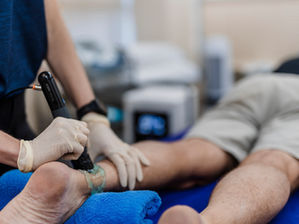Redefining Liquor Licensing In A Post-COVID World
- intouch Magazine
- Oct 5, 2021
- 3 min read

The hospitality industry has been one of the hardest hit sectors by COVID-19. Whilst there has been support from the government, many small business operators have had to turn back to the drawing board to identify new ways to generate income.
The past 18 months, whilst challenging, has seen many small bars and restaurants look to redefine their business models and seek to take advantage of some of the more relaxed regulations.
In NSW, the liquor licensing regulators have eased rules around the sale of takeaway alcohol to the public. This is largely due to the decreased impacts that the sale of takeaway alcohol by bars and restaurants has on the community during COVID restrictions, citing a “common sense and pragmatic approach to enforcing the liquor and gaming laws”.
The Newcastle and Hunter region has been no exception to innovation within the hospitality sector, with many bars and restaurants taking advantage of new opportunities, for example, new delivery concepts for their products. Whilst the sales generated from takeaways hasn’t replaced the lost income from stay-at-home orders, they have meant that many businesses could remain semi-operational and keep some staff employed.
Questions are now being asked about where to from here? It does seem likely that the regulators will fall back to the pre-covid norms of liquor licensing and seek to reimpose heavy regulations on the distribution of alcohol off-premise. For businesses who have benefited from the sales of takeaway food and alcohol and would like to maintain this additional revenue stream in the post lockdown, covid-norm era, this comes as unfortunate news. There are, however, options available in ensuring you have the right liquor license for your business and even altering your existing license to ensure you maintain new business exposure opportunities.
Whilst there is a lot of uncertainty going into the post-lock down, covid-norm era, some of the key points will be ensuring businesses are utilising their license to their full capacity; and where they aren’t, checking to see if the current license is the best license option for that business model. In some circumstances, venues may see a benefit in amending the floorspace of their existing license, for example, by excluding the office space.
This will then create an opportunity for that venue to apply for a packaged liquor license, providing for the sale of alcohol online or with takeaway meal orders. Given the likelihood that the popularity of boutique tailored takeaway meals will remain, an opportunity presents itself for small businesses to revamp their bar or restaurant offerings and take advantage of this new market segment.
Whether you’re thinking about opening a new venue that requires a liquor license, looking to amend your liquor license or amend your trading hours, Jenkins Legal Services can help. We specialise in Commercial Law relating to the hospitality industry and can assist every step of the way, from lease agreements to community impact statements. If you require assistance or advice relating to liquor licensing laws, please give Jenkins Legal Services a call on 02 4929 2000 or email office@jenkinslegal.com.au.
Jenkins Legal Services can also assist with all matters relating to property, estate planning, and employment law. This article is not legal advice, and the views and comments are of a general nature only. This article is not to be relied upon in substitution for detailed legal advice.




















































